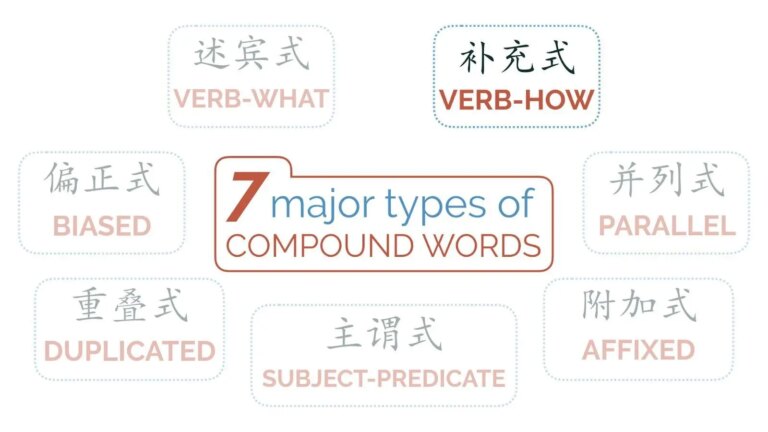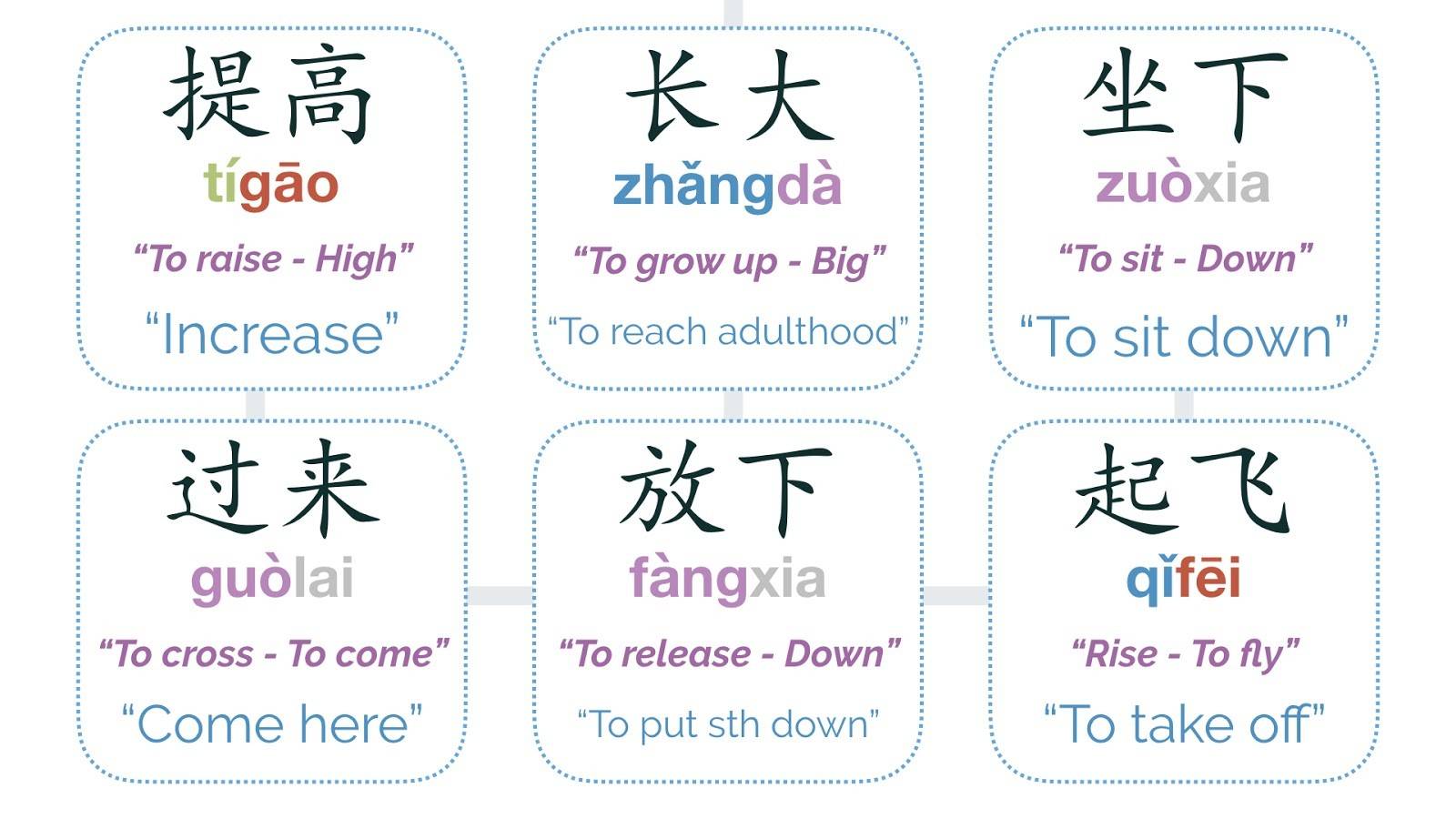How Chinese Words Work

Word Structure: Verb-How 补充式
This is part 3 of an 8-part series exploring all 7 types of Chinese compound words. This is part 3 – How Chinese Words Work. Click below for the other parts:
Part 1 – Part 2 – Part 3 – Part 4 – Part 5 – Part 6 – Part 7 – Part 8
Verb-How & Generalising 补充式

These words are also mostly Verbs, but the second morpheme explains the result of the verb. How did you eat 吃 chī?I ate well 吃好 chīhǎo. 吃 is the verb, and 好 is the result of the verb. When these words are nouns, they are referring to the broad scope of all of the nouns.
Action-Result
说明 shuōmíng
Verb: to speak. The result of your speaking? Clarity 明. Definition: Explain
消灭- xiāomiè
Verb: to exterminate 消. The result of your attempt at extermination? to the point of extinguishing 灭. Definition: Wipe Out
寄出- jìchū
Verb: to mail 寄. The result of your mailing? You mailed it out 出.
作出- zuòchū
Verb: to do or make 作. The result of your making something? It was created 出.
过来 guòlai | 过去 guòqu | |
上来 shànglái | 上去 shàngqù | |
下来 xiàlái | 下去 xiàqù | |
回来 huílái | 回去 huíqù | 回到 huídào |
进来 jìnlái | 进去 jìnqù | |
出来 chūlái | 出去 chūqu | 来到 láidào |
起来 qǐlái |
All of these are directional verbs like Cross (过), Go Up (上) or Return (回).
The second morpheme is the result of the verb, like Come, Go, or Arrive 来,去,到.

Generalizing Nouns
These are a particular sub-set of verb-how words that are technically in the same category, but we thought we’d keep them separate here. As shown in the example in the introduction above, these words’ first morpheme is a noun and the second morpheme is the measure word for that noun. This signifies that the word refers to all of a particular noun, as opposed to a specific number.
车辆- chēliàng
All cars or vehicles, no one specific car or set of vehicles.
人口- rénkǒu
The population of a place, AKA not one specific person.
书本- shūběn
Books in general, not any individual book
马匹- mápǐ
Horses in general
船只- chuánzhī
Shipping Vessels in general
枪支- qiāngzhī
Guns in general
事件- shìjiàn
An event, but broader than 事情 (shìqíng) which could be very specific. For example, World War 2 was a 事件, but a single instance of Winston Churchill sending out an order during WW2 is a 事情.
纸张- zhǐzhāng
Paper in general
There you go, now you know more about how Chinese words work already.








